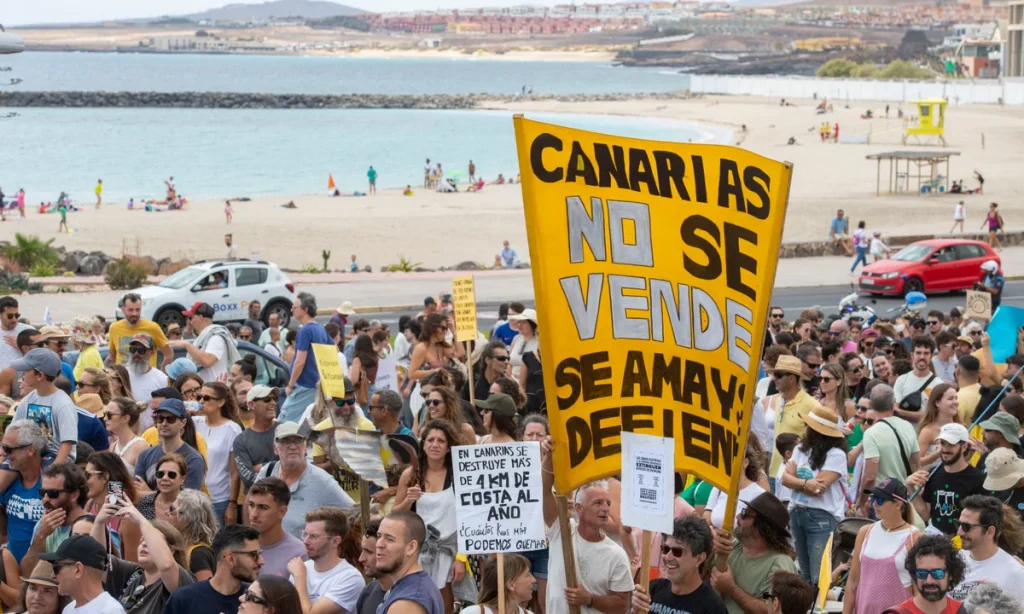Thousands of demonstrators took to the streets across Spain’s Canary Islands on Sunday, calling for restrictions on mass tourism that they argue is overwhelming their archipelago.
Under the slogan “The Canary Islands have a limit,” protests began at midday in key tourist areas on all seven main islands of the Atlantic region. Demonstrators marched through popular sites like the convention centre in Maspalomas (Gran Canaria), Fuerteventura’s only water park, and the nightlife area of Playa de las Americas on Tenerife’s southwestern coast.
Waving the Canary Islands’ white, blue, and yellow flags, the protesters slow-marched past tourists in Playa de las Americas, chanting and whistling as they passed outdoor terraces. Some demonstrators also rallied on the beach, declaring, “This beach is ours,” as tourists looked on.
The latest demonstrations follow similar protests in April, where locals voiced their discontent against a tourism model they claim benefits investors at the expense of the environment and local residents. Critics argue that mass tourism drives up housing costs and forces many into unstable jobs.
Authorities estimate that around 10,000 people participated in protests across the islands, with the largest gathering of 6,500 in Tenerife.
The Canary Islands, located off the northwest coast of Africa, are known for their volcanic landscapes and sunny climate, making them a popular spot for northern European tourists. Last year, a record 16.2 million visitors arrived, up 10.9 percent from 2022—over seven times the islands’ population of approximately 2.2 million. Protesters argue that such levels are unsustainable, straining the islands’ limited resources. This year’s figures suggest a potential to surpass last year’s record.
The largest tourist markets for the Canaries are the UK and Germany, although many visitors also come from mainland Spain. Despite tourism providing employment for 40% of the local population and contributing to 36% of the region’s GDP, many residents say they do not see the benefits.
According to the European Anti-Poverty Network, one in three Canary Islanders is at risk of poverty, and 65% struggle financially. The figures, presented to the regional parliament last week, highlight the ongoing economic challenges facing locals.
While some tourists expressed support for the protests, anti-tourism protests have become more frequent across Spain, the world’s second-most visited country after France, as authorities seek to balance the interests of residents with the lucrative tourism sector, which accounts for 12.8% of Spain’s economy. In response, Barcelona has announced plans to ban all holiday apartments by 2028, while Seville intends to cut off water supplies to unlicensed tourist properties.

